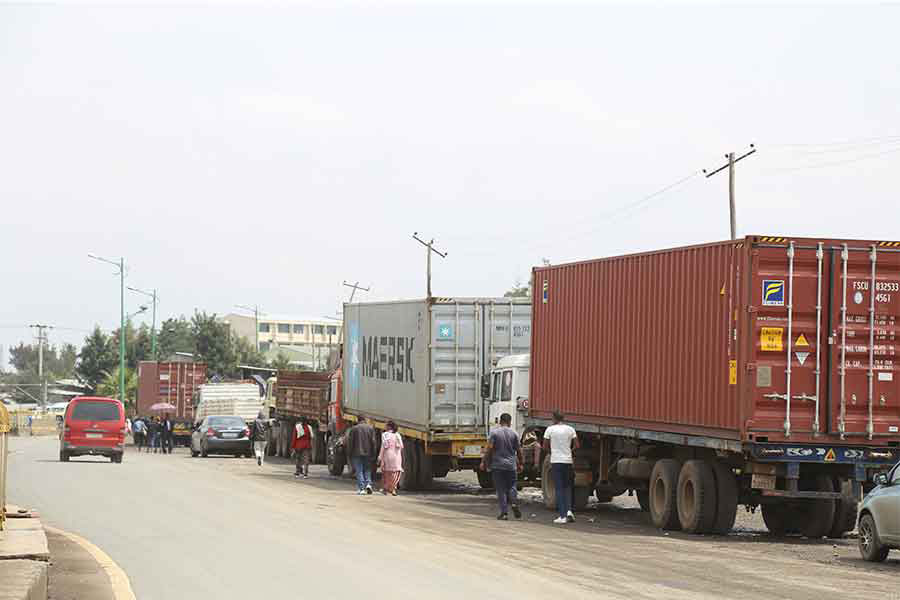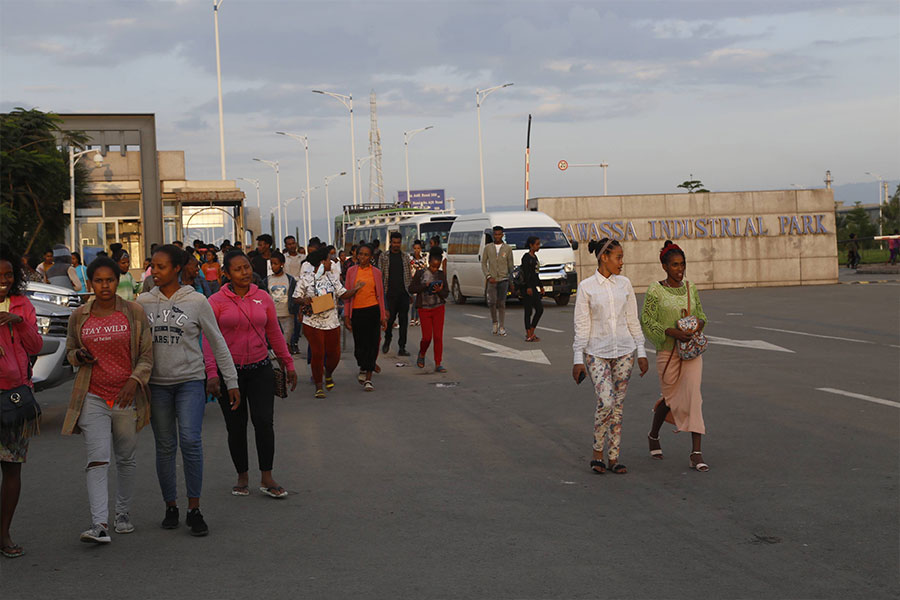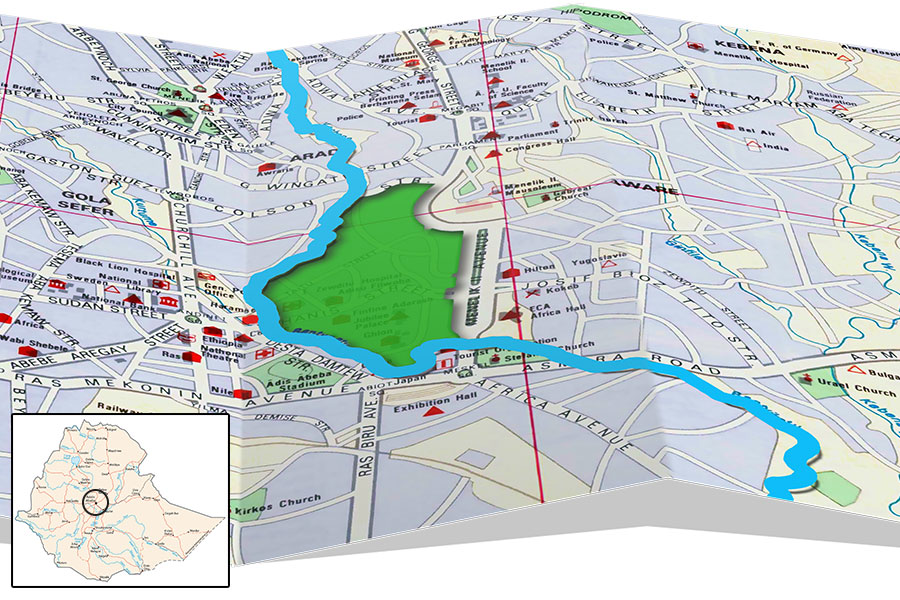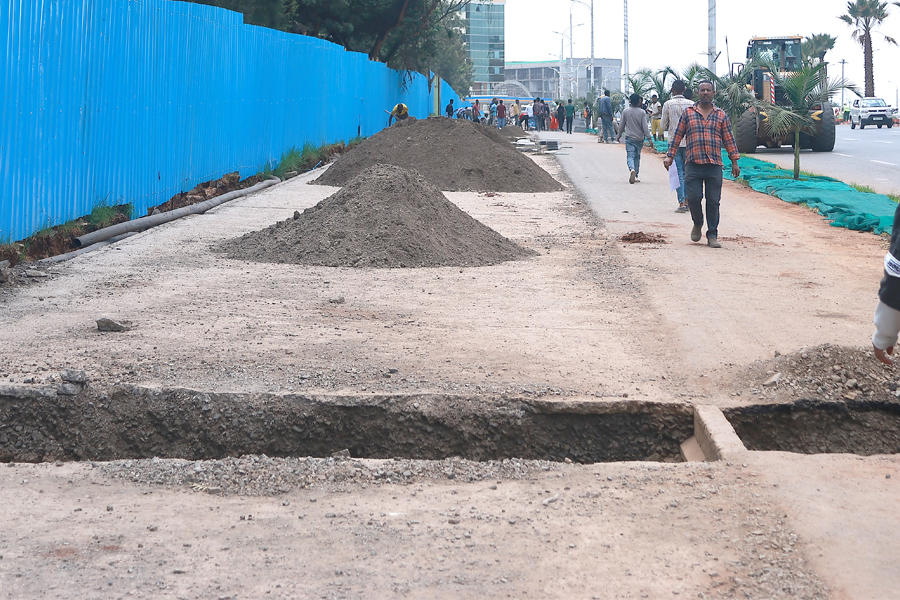
Fortune News | Oct 17,2020
Mar 6 , 2021
By MAYA MISIKIR ( FORTUNE STAFF WRITER )
The Addis Abeba City Administration has inaugurated a classroom expansion project initiated as a precautionary step against the Novel Coronavirus (COVID-19) across 150 schools in the capital. Despite this, some of the classrooms subject to expansion are not yet completed. The city launched the construction of 1,773 classrooms late last year with a one-month completion period.
Expected to have been ready for school reopening in November, the nearly one billion Birr project being fully funded by the City Administration is still underway four months later. The City Administration inaugurated the project two weeks ago with the presence of Deputy Mayor Adanach Abeibei; however, the project is still ongoing, according to sources close to the case.
The bid for the additional classrooms' construction was announced in mid-October, and the project was entirely contracted out to Edab Manufacturing & Construction Plc. But the project has since been divided between 85 other small and medium-scale construction associations, which took over 700 classroom projects.
The contractor who had initially received the contract for all the classrooms was unable to deliver on time, according to Selamawit G. Hanna, deputy head of the Construction Bureau, which is directly overseeing the project. The city has 535 public and 1,445 private schools that cater to nearly one million students.
However, as the delivery date approached, the Bureau involved 85 small and medium-scale enterprises.
"The payment was taken from the original agreement with the contractor," she said. "We'd reached an amicable agreement."
Edab Manufacturing was unresponsive to multiple inquiries from Fortune.
The number of classrooms intended to be constructed under the project was 1,812, but issues like court orders have forced downsizing. Some of the expansions were done within the compounds of the schools, and others were outside.
"Obtaining permits for expansion outside of their own compounds was a pre-requisite for the schools, so we had to reduce the numbers," said Selamawit.
Projects that are fast-tracked come with additional costs associated with ensuring quality during a shorter time period, according to experts in the field.
Delay, all too common in the construction industry, can be caused by problems that emanate from the project planning to implementation phases, according to Handebo Ayele, construction & technology management head at Hawassa University Institute of Technology.
If the design is not accurate or well-planned initially, delays are inevitable, he explained.
"It can also be caused by time-taking approvals from consultants as the project is implemented," he said. "At times, a consultant could be working on five or six projects simultaneously and getting a green light [from the consultant] may take time."
Studies in the sector have shown that delays in payments also hamper the speed of construction, especially on public projects.
"An unstable market like this, with rising cement prices, means that the contractor would have to get the approval for payment to proceed with the project," he said. "In public offices, where there is no database of construction material prices, this means a lengthy process to verify these claims."
Research in the field has long recommended that government agencies include construction inputs in statistical surveys, he added.
Unrealistic contract durations are another of the most common reasons, the expert cited.
PUBLISHED ON
Mar 06,2021 [ VOL
21 , NO
1088]

Fortune News | Oct 17,2020

Radar | Jun 29,2019

Fortune News | Jun 25,2022

Fortune News | Aug 06,2022

Fortune News | Oct 30,2021

Fortune News | Jan 27,2024

Radar | Dec 07,2019

Fortune News | Jan 14,2023

Radar | May 18,2019

Fortune News | Aug 25,2024

Dec 22 , 2024 . By TIZITA SHEWAFERAW
Charged with transforming colossal state-owned enterprises into modern and competitiv...

Aug 18 , 2024 . By AKSAH ITALO
Although predictable Yonas Zerihun's job in the ride-hailing service is not immune to...

Jul 28 , 2024 . By TIZITA SHEWAFERAW
Unhabitual, perhaps too many, Samuel Gebreyohannes, 38, used to occasionally enjoy a couple of beers at breakfast. However, he recently swit...

Jul 13 , 2024 . By AKSAH ITALO
Investors who rely on tractors, trucks, and field vehicles for commuting, transporting commodities, and f...

Jun 28 , 2025
Meseret Damtie, the assertive auditor general, has never been shy about naming names...

Jun 21 , 2025
A well-worn adage says, “Budget is not destiny, but it is direction.” Examining t...

Jun 14 , 2025
Yet again, the Horn of Africa is bracing for trouble. A region already frayed by wars...

Jun 7 , 2025
Few promises shine brighter in Addis Abeba than the pledge of a roof for every family...